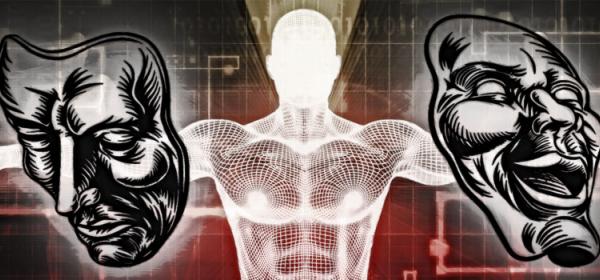My first experience with CHEK practitioners was shocking. I was at a lab seminar when I realized there was a group of people, oddly all sitting next to one another, who seemed quite different than the rest.
They all seemed to have back problems, why else would they be sitting bolt upright early in the morning at a medical seminar? They were all wearing white polo shirts and exercise pants. They all looked extremely alert and I couldn't tell if they were in pain or not. Were they in the right conference room I wondered? They seemed out of place amidst the slumping, slightly overweight and bleary eyed physicians that filled the room.
Little did I know I would soon be introduced to Paul Chek and this group of Level IV practitioners? Much later I realized they were sitting upright simply because they had the postural musculature to do so and they were alert because they followed the HLC foundation principles.
The key factor I have observed as I have worked with many CHEK practitioners of all levels is how the increasing levels of education in the CHEK system profoundly influence both the practitioner and the success of their business. Every LEVEL IV or HLC III practitioner I have met is a success, both professionally and in terms of implementing the CHEK philosophy in their personal life.
What is Depression, Really?
We hear so much about depression these days, what really is depression and how should it be treated? There are many underlying causes to depression each of which requires a unique clinical approach, categorizing depression as one single problem with one solution — finding the right anti-depressant medication — is a gross oversimplification that leads to poor clinical outcomes.
Most common underlying causes of depression:
1. Neurotransmitter dysfunction caused by:
- Nutritional Deficiencies
- Neurotoxicity
- Neuron Bundle Damage from Physical Trauma
- Genetic Defects of Neurotransmitter Production
2. HPA axis dysfunction caused:
- Sleep disorders
- Blood sugar control problems
- Improper exercise
- Chronic pain or inflammation
- Emotional and spiritual disconnection
Based on my clinical experience the two most common underlying causes of depression include neurotransmitter dysfunction or hypothalamic-pituitary-adrenal (HPA) axis dysfunction. Neurotransmitter dysfunction results from nutritional deficiencies, neurotoxicity or errors of metabolism. HPA axis dysfunction can result from any significant stress including lack of sleep, over or under exercise, poor blood sugar control, chronic pain or inflammation or emotional and spiritual disconnection.
There are of course serious cases of serious depression, suicidal ideation, manic-depression and other forms of mental illness. These cases require institutionalization and psychiatric medications. However, the vast majority of people diagnosed with "depression" can be successfully treated with simple, natural therapies because the origins of the problem come from poor lifestyle choices, not from an incurable mental health problem. As practitioners we need to be able to distinguish between who requires medical care and anti-depressant medications as they pose a danger to themselves or others and who is suffering from "lifestyle" generated depression that we can safely and effective work with.
Neurotransmitter dysfunction refers to abnormal levels of the 140 plus neurotransmitters present in the brain. Two "master" neurotransmitters that help regulate brain function and are acted upon by most anti-depressant medications include serotonin and dopamine. Serotonin is manufactured from 5 hydroxy-tryptophan and dopamine is made from the amino acid tyrosine. Research conducted by Dr. Marty Hinz of DBS Labs has demonstrated that vitamin C, calcium, cysteine and most importantly vitamin B6 are required for neurotransmitter production. While balancing brain chemistry through the use of amino acids requires expert knowledge and extensive lab testing, the crux of most neurotransmitter dysfunction is poor lifestyle habits.
Nutritional Deficiencies
Diets based on processed food with poor quality protein sources will lead to amino acid depletion and eventually results in neurotransmitter deficiencies. Our brains can only have sufficient neurotransmitter production if we eat a diet rich in high quality protein, appropriate for our metabolic type. Protein deficient diets and processed food or fast food based diets will rob us of the nutrients such as B6 that we require to maintain brain chemistry properly and depression will result. This then begs the question, should we even call this nutrient depletion syndrome depression? Neurotransmitter depletion leads to cravings for carbohydrates and compulsive overeating, forcing people into a downward spiral of weight gain and depression.
Anti-depressant medications can exacerbate neurotransmitter dysfunction. Over time these medications deplete neurotransmitters. This was first established by researchers at MIT in the 1960's and has been repeatedly demonstrated in studies since then. However, most conventional medical doctors prescribing these drugs are unaware of these studies as they are not part of the typical pharmaceutical reps doctor education materials. In fact anti-depressant medications lead to short term flooding of the brain with more neurotransmitters and this artificial push is short lived as over time these neurotransmitters are degraded and broken down at a faster rate than they would be in a non-medicated individual. We end up with short term relief of symptoms and a worsening of the original deficiency state with ever lower levels of naturally available neurotransmitters. This means drug dosages need to be increased to maintain effectiveness, or patients need to change medications, or the medications eventually just don't work as well as they once did and people have to live with the return of symptoms.
The natural therapy correction for this type of "depression" is switching to an organic foods based diet, eating high quality protein and farm fresh produce based on our metabolic type. This diet provides us with the critical amino acids, vitamin C, cysteine and B6 required for neurotransmitter repletion.
Neurotoxicity
Neurotoxicity is another leading cause of "depression". Neurotoxicity refers to damage to the neuron bundles in the brain from neurotoxic drugs; neurotoxic pesticides and herbicides; heavy metals such as mercury and lead; parasitic infections such as giardia that release neurotoxins; and the thousands of chemicals now present in the environment that we are regularly exposed to.
When you really think about how neurotoxic our food and water supply has become, it is amazing we can be happy or think at all!
Neurotoxins destroy the firing capacity of neuron bundles. This leaves us with neuron bundles that do not conduct the nerve impulses we require to feel happy and at peace. Therefore we experience the results of low serotonin and low dopamine, namely, anxiety, depression, sleep disorders, brain fog, poor memory and a general lack of enthusiasm for living life to its fullest; we become "depressed".
Neuron Bundle Damage from Physical Trauma
Head trauma also damages neuron bundles. Even one major head injury can damage neuron bundles and decreased neuronal firing. This too can lead to depression. These clients require extra attention to all the lifestyle principles of the HLC work to keep their brains properly functioning. Some with extensive head injuries may require additional natural therapy.
Some people are actually suffering from depression unrelated to HPA axis dysfunction, neurotoxin exposure or head injury. They may have been born with inborn errors of metabolism in production of the key neurotransmitters such as dopamine and serotonin. In this situation there is a limited ability to "correct" the problem. Typically with this type of depression there is a strong family history of mental illness, manic depression, suicide, alcoholism, drug addiction or other obvious signs that there is a genetic tendency to poor neurotransmitter function. This group of people can have life changing experiences if their brain chemistry is balanced through amino acid therapy. The conventional medical approach of anti-depressant medications can also provide benefits in treatment and relieve suffering.
We need to be astute enough in our assessments to identify these cases and refer them to an experienced psychiatrist or alternative medical practitioner. These are the truly mentally ill. In my experience they are few and far between when compared with the total number of client's I have worked with diagnosed with "depression" and put on anti-depressant medications.
Case Study:
Patricia was a 47 year old female client. She complained of debilitating low back pain and numbness down the left leg, fatigue and depression.
She worked with a Level IV CHEK practitioner who developed a corrective exercise program that relieved her back condition.
The client was dramatically improved and had experienced considerable pain relief and improvement in mood. We also initiated an HLC assessment to complement her CHEK corrective exercise program.
As with all clients we started with the basics.
There were two issues of immediate concern: (1) Poor lifestyle factors (diet, sleep, stress and exercise related) leading to nutrient depletion and hormone down regulation; and (2) neurotoxicity.
(1) Poor lifestyle factors
To remedy this Patricia's CHEK practitioner implemented an HLC program which included teaching her to eat for her metabolic type, hydrating, and making healthy food choices whenever possible by choosing organic and locally grown foods. Patricia discovered that making proper food selections had a strong effect on her sense of well being.
Patricia also agreed to eliminate gluten. I have observed hundreds of cases in my clinic in which gluten intolerance triggered depression through HPA axis down regulation. This occurs because the body's reactions to gluten includes an inflammatory response in the lining of the small intestine causing abnormal cortisol production, which eventually results in depression via HPA axis down regulation. The scientific community recognizes that HPA axis problems are a leading cause of depression. As practitioners we must then make the leap to treat depression as an HPA axis dysfunction syndrome. Therefore any lifestyle issue that improves stress hormone production will help relieve the "depression". Lack of sleep and the stress of her pain further exacerbated her cortisol problems. Lack of exercise and lack of chi-building activities completed the lifestyle factor catastrophe. Patricia needed rebuilding and repair of the HPA axis to heal. Interestingly, research has demonstrated exercising 3-5 times per week to reduce depression as effectively as the anti-depressant medication Zoloft.
Using HLC work-ups her CHEK practitioner improved her diet choices, having her eat properly for her metabolic type and getting her off of gluten. While the corrective exercise program got her out of pain, the lifestyle therapies working synergistically together began the healing process for her brain. This led to an obvious level of improvement in mood and energy levels.
Part of Patricia's program included a concerted effort at reducing her level of neurotoxins. Neurotoxins can be found in many places. Since many pesticides and herbicides act as neurotoxins, an organic food diet was essential for reducing neurotoxicity. Patricia's high levels of lead, mercury and cadmium seen on lab tests generated a further toxic load for her central nervous system. Her parasitic and fungal infections also put a burden on her detoxification system, while at the same time the digestive system problems reduced her capacity for absorbing key nutrients required to help assist the detoxification process.
Her treatment program included intensive focus on lifestyle factors and rehabilitative exercise; replenishment of neurotransmitters and detoxification through a Metabolic Typing diet, saunas and juicing; rebuilding of her adrenal hormone production by improving sleep patterns, reducing her stress by relieving her chronic pain; clearing her GI track of pathogens with a parasite and fungal cleanse and addressing her energetic blocks.
This treatment plan took place over the course of more than a year and she achieved complete remission of all symptoms and returned to work, active, depression free and pain free. I continue to look forward to our twice yearly check ups as her achievements in healing herself are inspiring.


